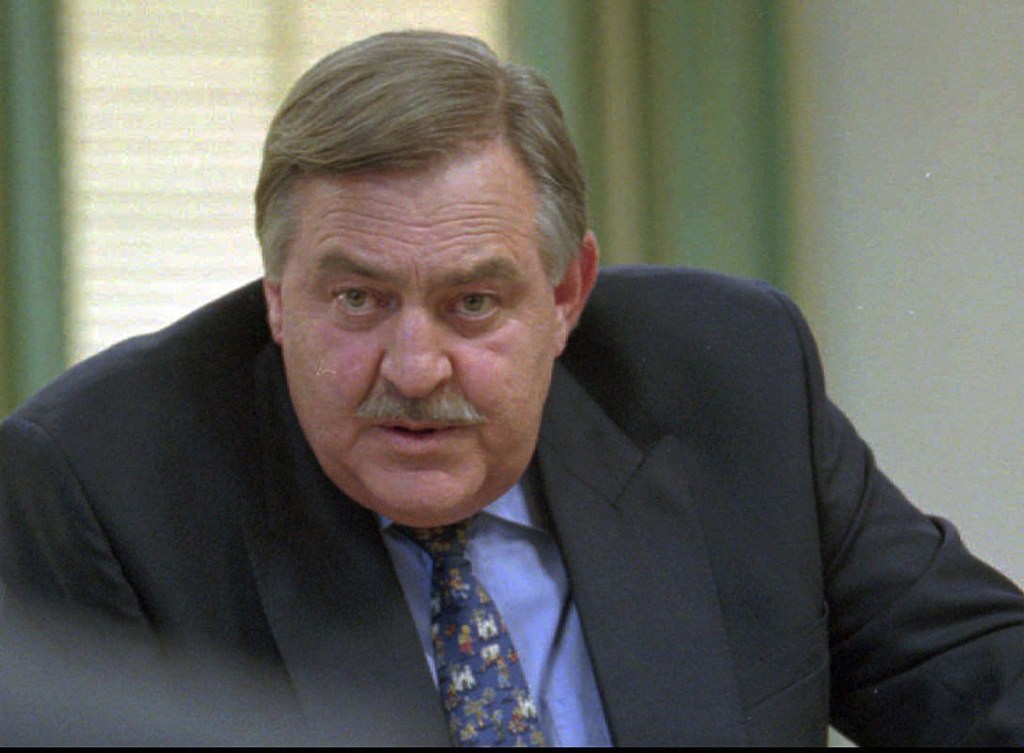JOHANNESBURG — Roelof “Pik” Botha, the last foreign minister of South Africa’s apartheid era and a contradictory figure who staunchly defended white minority rule but recognized that change was inevitable, died Friday at age 86.
Botha died in “the early hours of the morning” at his home after an illness, his son, also named Roelof, told South Africa’s eNCA news outlet.
Internationally, Botha was the most visible representative of apartheid at the height of protests and sanctions against the racist rule that ended with Nelson Mandela’s election as the nation’s first black president in 1994.
Often willing to passionately debate critics, the longtime foreign minister was vilified around the world while drawing the ire of his own boss, President P.W. Botha, when he said in 1986 that South Africa might one day have a black leader.
“Merely because you are riding on a plane doesn’t mean that you agree with the pilot’s decisions,” Botha said in a 1996 interview with peace advocate Padraig O’Malley.
Pik Botha, who was not related to the apartheid-era president, later served for two years as minister of mineral and energy affairs under Mandela, and said in 2000 that he would join the African National Congress, the ruling party that had led the movement against white minority rule for decades.
Botha was “one of the few” in the apartheid structure who realized “at an early stage that apartheid was a wrong and crime against humanity,” the ANC said in a condolence message.
He will be remembered for “his support for South Africa’s transition to democracy and for his service in the first democratic administration,” the office of President Cyril Ramaphosa quoted him as saying.
The office statement said Botha’s 17-year stint as foreign minister was “a world record in the diplomatic community.”
Apartheid’s last president, F.W. de Klerk, said Botha was a “unique and colorful personality” who advocated reform, constitutional negotiations and the release of Mandela from prison during intense discussions within the white minority government in the 1980s.
Copy the Story LinkSend questions/comments to the editors.



Success. Please wait for the page to reload. If the page does not reload within 5 seconds, please refresh the page.
Enter your email and password to access comments.
Hi, to comment on stories you must . This profile is in addition to your subscription and website login.
Already have a commenting profile? .
Invalid username/password.
Please check your email to confirm and complete your registration.
Only subscribers are eligible to post comments. Please subscribe or login first for digital access. Here’s why.
Use the form below to reset your password. When you've submitted your account email, we will send an email with a reset code.